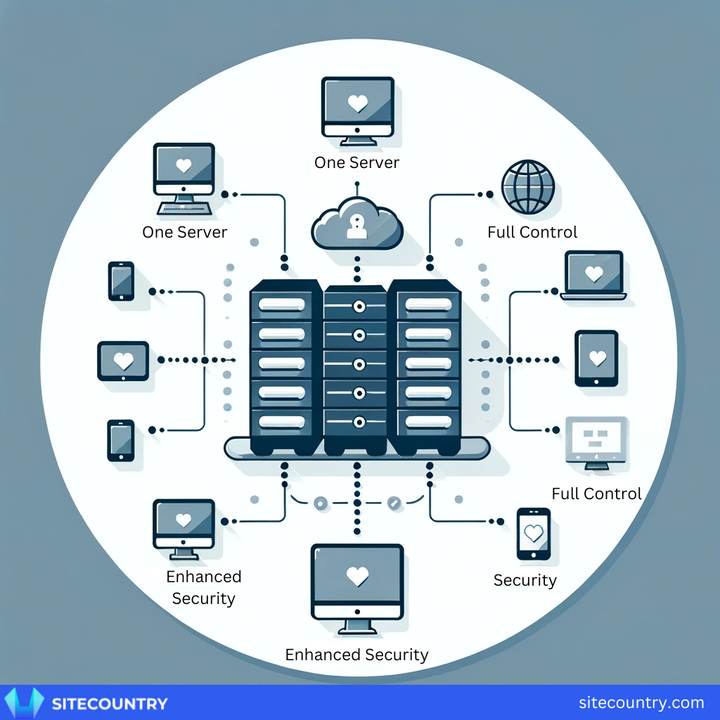What is Serverless Hosting?

Ever wondered about the next big thing in web hosting? Say hello to serverless hosting, a groundbreaking shift in the tech industry. It's not just about ditching traditional servers; it’s about transforming how we approach efficiency and scalability in cloud computing.
Why is this important? Serverless hosting marks a move towards more agile and cost-effective web solutions. It's more than a new hosting method; it's a glimpse into the future of internet interaction.
In this blog, we'll delve into how serverless hosting is redefining the norms of digital hosting. With cloud computing evolving rapidly, serverless hosting is at the forefront. Curious to see how it shapes our digital future?
Serverless Hosting?
Serverless hosting is a modern approach to hosting websites and apps. Unlike traditional hosting, where you pay for a fixed amount of server space, serverless hosting is more flexible. It lets you use and pay for only as much server space as you need, when you need it.
Think of traditional hosting like renting an apartment – you pay for all the space, whether you use it or not. Serverless hosting is like only paying for the rooms you use. This makes it cost-effective and efficient.
Another benefit? With serverless, the cloud service manages the servers, not you. This means you can focus more on building your website or app and less on server maintenance.
Current State of Serverless Hosting
Serverless hosting is rapidly evolving, becoming a cornerstone in modern cloud computing. The current trends and statistics show a significant surge in its adoption. More businesses are turning to serverless solutions for their scalability and efficiency.

Who are the major players? AWS Lambda, introduced by Amazon Web Services, is a frontrunner, offering powerful serverless computing capabilities. Google Cloud Functions and Microsoft Azure Functions are also key competitors, each providing unique features and services. These serverless hosting providers are shaping the serverless computing market, driving innovation and accessibility.
Advantages of Serverless Hosting
Serverless hosting brings a host of benefits, each fitting perfectly into today's dynamic tech landscape:
Scalability: It scales resources up or down automatically based on user demand, ensuring that your application always has the right amount of power without over or under-utilizing resources.
Cost-Efficiency: With a pay-for-what-you-use model, serverless hosting significantly cuts down costs by eliminating the need for pre-purchased server capacity that might not be fully utilized.
Operational Efficiency: It offloads the burden of server maintenance, allowing developers to focus more on developing the application itself rather than on managing and operating servers.
Enhanced Performance: Serverless architectures are optimized for performance, often reducing latency by running tasks closer to the user, thus enhancing the end-user experience.
Flexibility: This approach allows for greater experimentation and faster deployment of features, as developers can make changes without affecting the whole infrastructure.
A case in point: A tech startup using serverless hosting saw a 40% cut in costs and quicker app updates, boosting user engagement.
Challenges and Considerations in Serverless Hosting
While serverless hosting offers numerous advantages, it also comes with its own set of challenges and considerations.
Security Concerns: The distributed nature of serverless applications raises security issues. Enhanced access controls and data encryption are becoming standard practices to tackle these serverless security concerns.
Debugging Difficulties: Debugging in a distributed environment is complex. Improved tools and observability practices are evolving to simplify the process of debugging serverless applications.
Vendor Lock-in: Relying on a single provider can be risky. Adopting a multi-cloud strategy and containerization helps in avoiding vendor lock-in and ensures flexibility.
Performance Limitations: Issues like latency during cold starts are being addressed with strategies like keeping functions warm to ensure quicker response times.
Resource Limitations: Constraints in runtime and resources can be managed by optimizing code and using microservices, allowing more efficient operation within serverless environments.

Despite these challenges, the ongoing advancements in serverless technology are continuously providing solutions, making it a viable option for many businesses.
Future Predictions and Trends in Serverless Hosting
As serverless hosting continues to evolve, it's becoming a pivotal element in the evolution of cloud computing. Far from just an alternative to traditional hosting, it's driving exciting new advancements in the tech landscape.
Emerging Trends in Serverless Hosting:
Increased Adoption Across Industries: Serverless hosting is expanding beyond tech-savvy startups to a broader range of industries. This widespread adoption is driven by its cost-effectiveness and scalability, making it a go-to solution for businesses seeking digital transformation.
Enhanced Development Frameworks: We're seeing more advanced development frameworks and tools tailored to serverless architectures. These enhancements are making serverless more accessible and easier to use, even for complex applications.
Integration of AI and Machine Learning:
A significant trend is the integration of Artificial Intelligence (AI) and Machine Learning (ML) with serverless hosting. This synergy is opening up new possibilities:
AI-Driven Automation: Serverless architectures are increasingly incorporating AI to automate various tasks, from infrastructure management to real-time data processing, enhancing efficiency and reducing manual effort.
ML Model Deployment: With serverless hosting, deploying and scaling ML models becomes more streamlined. This is crucial for applications requiring real-time data analysis and decision-making.
To Know More, Read: https://blog.sitecountry.com/what-is-a-dedicated-hosting/
Future Predictions:
Looking ahead, serverless hosting is expected to become more intuitive and intelligent. Predictive scaling, where serverless systems anticipate and prepare for traffic spikes using AI algorithms, is likely to become a standard feature.
Another prediction is the rise of serverless edge computing. This will bring computation closer to the data source, reducing latency and improving performance for IoT and real-time applications.

Conclusion
Serverless hosting emerges from our exploration as a pivotal force in reshaping web development and cloud computing. It's more than a trend; it's a transformative shift offering scalability, cost-efficiency, and the potential for seamless integration with cutting-edge technologies like AI and machine learning.
As we look towards the future, serverless hosting stands at the forefront of digital innovation. It promises a new era of operational agility and user-centric experiences in the online world. This technology isn't just a step forward; it's a giant leap into a new realm of digital possibilities, signaling a bright and efficient future for the tech industry.
FAQs
Is serverless really the future?
Serverless is widely regarded as a key future technology due to its scalability and cost efficiency.
What is the forecast for serverless?
The outlook for serverless is very positive, with substantial growth anticipated as more organizations turn to cloud solutions.
What is the growth rate of serverless?
Serverless computing is experiencing a robust growth rate, with a consistent increase in adoption highlighted in industry reports.
Is serverless better than server?
Serverless has distinct advantages in scalability and operational efficiency over traditional servers, especially for specific use cases.


